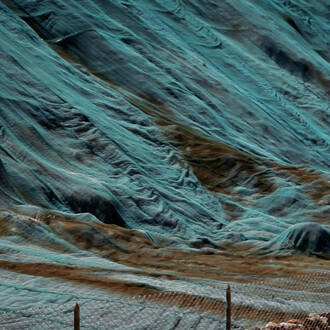Di Rosa Center for Contemporary Art presents Frances McCormack: Rooted in wonder in the light-filled Gallery 1. The expansive 40-year survey of painting and collage by Bay Area artist Frances McCormack will be on view March 29 – June 29, 2025, with an opening reception Saturday, March 29, 5 – 7 p.m.
Originally from Boston, Massachusetts, McCormack relocated to the Bay Area in the late 1970s, completing her fine arts education at San Francisco State University and the University of California, Berkeley. Her abstract compositions, featuring tube or tendril like forms, fields and bands of color, and painterly layering and effects, quickly earned her praise, with art critic Kenneth Baker writing: "her paintings strive for a kind of material poetic statement possible only in painting."
“I have always admired McCormack’s ability to create visual interpretations of flora and fauna that are energetic, compelling, and introspective,” said Kate Eilertsen, Executive Director and Chief Curator at di Rosa. “Her painterly style and use of color reflect her engagement with Northern California’s natural and artistic ecosystems.”
In her lush paintings, McCormack explores personal themes with the garden as a guiding metaphor. Drawing on the concept of the garden as an enclosure, she populates the field of the painting with botanical references and images in earthly and vegetative hues. Pushing against compositional limits, these forms and color fields describe the nature of growth, energy, and even human struggle.
“I have found…that in both viewing and making art, what occurs and is so seductive is a temporary fading of the pressures and expectations of daily existence,” writes McCormack, in an essay included in the 160-page monograph, Frances McCormack – Rooted in wonder: paintings, 1984 – 2024, published in conjunction with the exhibition. “Time and reality are transformed by attention and condensation. This is the experience I want for the viewer. Wonder and curiosity. The arts — painting, music, film, performance — can serve as artifacts of reflection. They also inspire us to renegotiate our often-harsh contract with life and open ourselves to the unexpected.”












